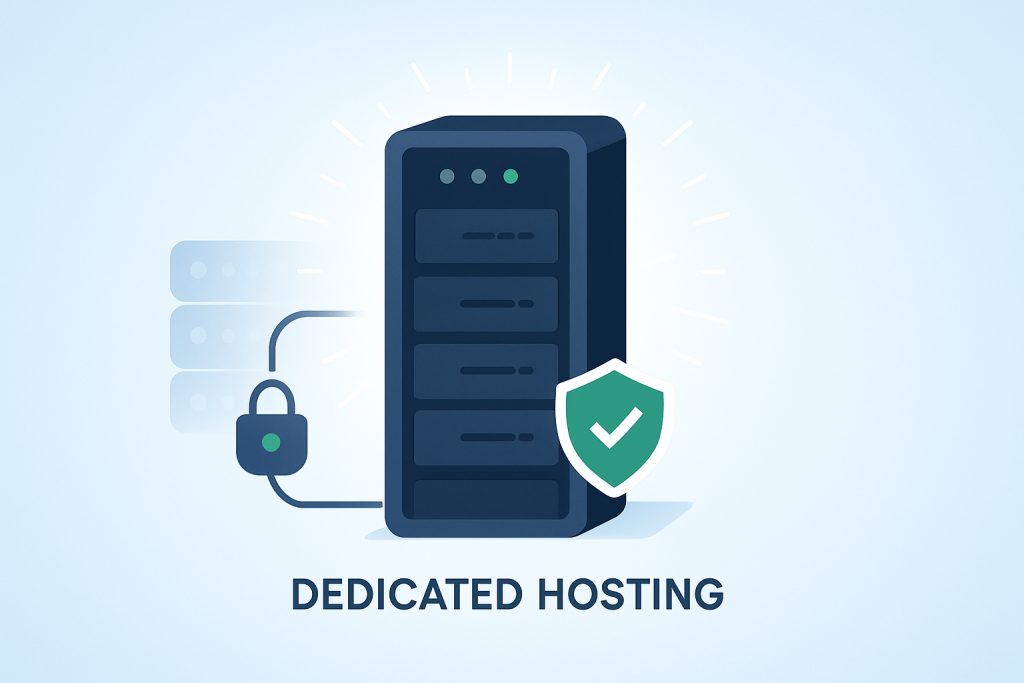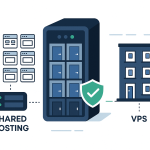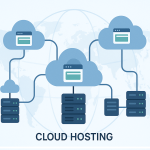Dedicated hosting is the apex of the hosting world. It is the ultimate solution for any organization that cannot afford compromise on performance, security, or control. Unlike shared or VPS hosting, where resources are split and virtualized, dedicated hosting means you rent an entire, physical machine—a powerful server reserved exclusively for your business.
Think of it as owning a private, custom-built data center entirely contained within your host’s secure facility.
The shift to dedicated hosting is not a casual upgrade; it is a strategic investment. It signifies that your online presence—whether a major e-commerce store, a financial platform, or a large-scale SaaS application—is mission-critical. While it comes with the highest cost and requires significant technical oversight, the unparalleled power, security, and customization it unlocks make it worth every penny for the right project.
This guide will dissect the architecture of dedicated hosting, detail its technological advantages, and provide a clear framework for when the investment becomes a business necessity.
Part 1: The Anatomy of a Dedicated Server
Dedicated hosting is characterized by its singular focus: 100% resource allocation to one client.
What is Dedicated Hosting? (A Technical View)
When you purchase a dedicated server, you are leasing the physical components—the CPU, RAM, NVMe SSD storage, and network card—from the host.
- Zero Resource Sharing: You do not share CPU cycles or memory pools with any other client. This eliminates the “noisy neighbor” effect entirely, ensuring predictable, maximum performance 24/7.
- Bare Metal Access: You receive complete root or administrator access. This allows you to interact with the server at the hardware level, controlling the operating system, kernel, and every piece of software.
- Physical Isolation: Since your server is a physical machine separated from others, it offers a fundamental layer of security and isolation unmatched by shared or VPS environments.
The Hardware Advantage: Why Dedicated is Faster
The power of dedicated hosting goes beyond just resource allocation; it’s about the quality of the components:
- Enterprise-Grade CPUs: Dedicated servers use high-end server processors (e.g., Intel Xeon or AMD EPYC). These chips are designed for continuous, heavy-duty workloads, unlike the consumer-grade vCPUs often pooled in VPS environments.
- ECC RAM (Error-Correcting Code): Dedicated servers use ECC RAM, which automatically detects and corrects data corruption errors. This is crucial for applications where data integrity is paramount (e.g., financial or scientific computing).
- RAID Hardware Redundancy: Dedicated servers often utilize Hardware RAID (Redundant Array of Independent Disks) setups, which mirror data across multiple physical drives. This prevents data loss and maintains uptime even if one drive fails.
Part 2: The Core Benefits—Power, Control, and Compliance
The high price tag of dedicated hosting is justified by the three pillars it provides: uncompromised performance, total customization, and enterprise-level compliance.
1. Maximum, Predictable Performance
Dedicated servers are built to handle the highest possible demand without breaking a sweat:
- Handling High Traffic: Perfect for websites receiving 500,000 to several million monthly visitors, such as major news publications or heavily trafficked media portals.
- Guaranteed Bandwidth: Unlike VPS, where bandwidth can sometimes be shared, dedicated hosting provides a guaranteed, high-speed uplink port (e.g., 1Gbps or 10Gbps) for massive data transfers and low-latency response.
- Mission-Critical Stability: Ideal for applications where even minutes of downtime translate directly to hundreds or thousands in lost revenue (e-commerce checkout, stock trading platforms).
2. Complete Customization and Control
Root access grants you the freedom to create a perfectly tuned server environment:
- Operating System Choice: Install any OS (Linux distribution, Windows Server) and customize the kernel parameters to optimize it for your specific software stack.
- Custom Software Stacks: Install specific versions of databases (Oracle, MS SQL), programming frameworks (Ruby on Rails, specialized Python libraries), or security modules that are simply unavailable on shared platforms.
- Fine-Tuning Performance: Adjust server limits (e.g., PHP memory limits, max connections) far beyond what any managed service allows, ensuring your application runs at peak efficiency.
3. Enterprise-Grade Security and Compliance
For businesses handling sensitive data, dedicated hosting is often a compliance mandate:
- Regulatory Requirements: Strict compliance standards like HIPAA (Healthcare), PCI DSS (Payment Card Industry Data Security Standard), and various national data privacy laws often require the physical isolation and granular logging that only a dedicated server can provide.
- Proactive Defense: Since you control the server, you control the firewall (both network and application level), intrusion detection systems, and audit logging, ensuring comprehensive security visibility.
Part 3: The Crucial Choice: Managed vs. Unmanaged Dedicated
The need for expertise is the primary hurdle for dedicated hosting. This makes the Managed vs. Unmanaged decision the most important financial and operational choice.
Unmanaged Dedicated Hosting
- User Responsibility: You are the full-time system administrator. You handle hardware provisioning, OS installation, security hardening, firewall configuration, software patching, monitoring, and troubleshooting.
- Target Audience: Large enterprises with existing, specialized IT departments.
- Cost: Lowest monthly price, but the highest operational cost (requires skilled, expensive personnel).
Managed Dedicated Hosting
- Host Responsibility: The host’s expert staff handles the most time-consuming and critical tasks: server setup, OS patching, security auditing, 24/7 monitoring, control panel management (cPanel/Plesk), and hardware replacement in case of failure.
- Target Audience: High-traffic businesses, large e-commerce sites, and agencies that need dedicated power but lack a full-time system administration team.
- Cost: Higher monthly price, but eliminates the need to hire or train in-house server experts. This is often the more economically sensible choice for SMEs.
Financial Calculus: The cost of hiring a mid-level system administrator far exceeds the premium for a fully managed dedicated server. For most businesses, managed dedicated hosting is an essential cost avoidance strategy.
Part 4: Dedicated vs. Cloud: A Critical Comparison
The rise of Cloud Hosting (AWS, Google Cloud, Azure) has challenged the dedicated model. Understanding the trade-off between the two is key to making the final choice.
| Feature | Dedicated Hosting | Cloud Hosting (IaaS) |
| Raw Performance | Higher. Raw, non-virtualized physical CPU power. | High, but resources are virtualized (vCPUs). |
| Scalability | Limited. Requires manual hardware upgrade or migration. | Excellent. Can scale resources up/down instantly. |
| Cost Model | Fixed monthly lease/rental fee. | Pay-as-you-go (utility model); cost varies by usage. |
| Downtime/Resilience | Single point of failure (the physical server) mitigated by RAID/Failover. | Highly resilient; data is mirrored across multiple data centers. |
| Control | Maximum. Full control over all hardware and software. | High, but limited by the Cloud provider’s virtualization layer. |
Verdict: Choose Dedicated Hosting for projects requiring maximum, sustained single-server power (e.g., database serving, legacy enterprise software). Choose Cloud Hosting for projects demanding auto-scaling, geographic redundancy, and unpredictable traffic demands.
Conclusion: When Dedicated Hosting Pays for Itself
Dedicated hosting is the foundation upon which the most demanding and successful digital platforms are built. It is not an entry-level product, nor is it meant for a simple blog.
You know dedicated hosting is worth the investment when:
- Your business’s uptime guarantee must be 99.99% or higher.
- You handle sensitive customer data that requires PCI DSS or HIPAA compliance.
- You need to install specific custom kernels, databases, or application servers.
- Your high-traffic site or application is constantly being throttled on a VPS.
For mission-critical digital assets, dedicated hosting provides the raw power, unparalleled security, and absolute control required to protect your investment and sustain exponential growth. It is the gold standard of hosting for enterprises in 2025.



